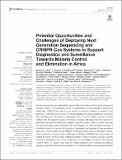| dc.contributor.author | Lyimo, Beatus | |
| dc.contributor.author | Popkin-Hall, Zachary | |
| dc.contributor.author | Giesbrecht, David | |
| dc.contributor.author | Mandara, Celine | |
| dc.contributor.author | Madebe, Rashid | |
| dc.contributor.author | Bakari, Catherine | |
| dc.contributor.author | Pereus, Dativa | |
| dc.contributor.author | Seth, Misago | |
| dc.contributor.author | Ngamba, Ramadhan | |
| dc.contributor.author | Mbwambo, Ruth | |
| dc.contributor.author | MacInnis, Bronwyn | |
| dc.contributor.author | Mbwambo, Daniel | |
| dc.contributor.author | Garimo, Issa | |
| dc.contributor.author | Chacky, Frank | |
| dc.contributor.author | Aaron, Sijenunu | |
| dc.contributor.author | Lusasi, Abdallah | |
| dc.contributor.author | Molteni, Fabrizio | |
| dc.contributor.author | Njau, Ritha | |
| dc.contributor.author | Cunningham, Jane | |
| dc.contributor.author | Lazaro, Samwel | |
| dc.contributor.author | Mohamed, Ally | |
| dc.contributor.author | Juliano, Jonathan | |
| dc.contributor.author | Bailey, Jeffrey | |
| dc.contributor.author | Ishengoma, Deus | |
| dc.date.accessioned | 2023-10-24T07:09:17Z | |
| dc.date.available | 2023-10-24T07:09:17Z | |
| dc.date.issued | 2022-07-13 | |
| dc.identifier.uri | https://doi.org/10.3389/fcimb.2022.757844 | |
| dc.identifier.uri | https://dspace.nm-aist.ac.tz/handle/20.500.12479/2349 | |
| dc.description | A research article was submitted to Clinical Microbiology Volume 12 - 2022 | en_US |
| dc.description.abstract | Recent developments in molecular biology and genomics have revolutionized biology and medicine mainly in the developed world. The application of next generation sequencing (NGS) and CRISPR-Cas tools is now poised to support endemic countries in the detection, monitoring and control of endemic diseases and future epidemics, as well as with emerging and re-emerging pathogens. Most low and middle income countries (LMICs) with the highest burden of infectious diseases still largely lack the capacity to generate and perform bioinformatic analysis of genomic data. These countries have also not deployed tools based on CRISPR-Cas technologies. For LMICs including Tanzania, it is critical to focus not only on the process of generation and analysis of data generated using such tools, but also on the utilization of the findings for policy and decision making. Here we discuss the promise and challenges of NGS and CRISPR-Cas in the context of malaria as Africa moves towards malaria elimination. These innovative tools are urgently needed to strengthen the current diagnostic and surveillance systems. We discuss ongoing efforts to deploy these tools for malaria detection and molecular surveillance highlighting potential opportunities presented by these innovative technologies as well as challenges in adopting them. Their deployment will also offer an opportunity to broadly build in-country capacity in pathogen genomics and bioinformatics, and to effectively engage with multiple stakeholders as well as policy makers, overcoming current workforce and infrastructure challenges. Overall, these ongoing initiatives will build the malaria molecular surveillance capacity of African researchers and their institutions, and allow them to generate genomics data and perform bioinformatics analysis in-country in order to provide critical information that will be used for real-time policy and decision-making to support malaria elimination on the continent. | en_US |
| dc.language.iso | en | en_US |
| dc.publisher | Frontiers | en_US |
| dc.subject | next generation sequencing | en_US |
| dc.subject | CRISPR-Cas systems | en_US |
| dc.subject | pathogen genomics | en_US |
| dc.subject | malaria diagnosis | en_US |
| dc.subject | malaria molecular surveillance | en_US |
| dc.title | Potential Opportunities and Challenges of Deploying Next Generation Sequencing and CRISPR-Cas Systems to Support Diagnostics and Surveillance Towards Malaria Control and Elimination in Africa | en_US |
| dc.type | Article | en_US |

